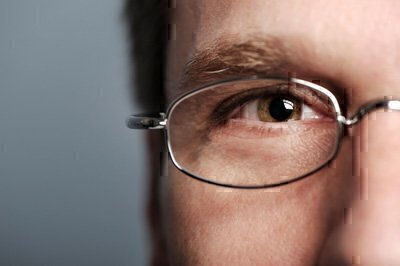Are You a Good Candidate for LASIK?
Last updated May 2019
LASIK won’t help some types of vision problems, and it’s inappropriate for some people.
Your age, and how long you are likely to be able to enjoy the full benefits of laser eye surgery, are major considerations. You must be old enough for your vision to have stabilized; people in their early 20s or younger often have significant “refractive instability,” which means corrections made by laser surgery might lose their effectiveness as their eyesight continues to change.
 Even if you’re of ideal age for LASIK, know that it’s unlikely to provide permanent freedom from glasses and contacts. Your vision may deteriorate due to normal aging of your eyes’ lenses and post-LASIK eyes tend to regress back toward their original poor vision. Also, after age 40, almost all people develop presbyopia, which is an inability of the eye to focus well close-up.
Even if you’re of ideal age for LASIK, know that it’s unlikely to provide permanent freedom from glasses and contacts. Your vision may deteriorate due to normal aging of your eyes’ lenses and post-LASIK eyes tend to regress back toward their original poor vision. Also, after age 40, almost all people develop presbyopia, which is an inability of the eye to focus well close-up.
Standard LASIK doesn’t treat presbyopia. “Monovision LASIK” can correct one eye to focus sharply at distance and one eye to focus sharply at near, but some patients can’t tolerate that change. Beyond that the only solution to presbyopia is to wear corrective lenses.
Reasons you might not be a good candidate for LASIK:
If you currently need a large correction. If your vision is quite poor before surgery, LASIK is less likely to allow you to go without glasses than for those who need small corrections. Also, you are slightly more likely than other patients to have post-surgery vision problems such as seeing glare or halos at night, and you’re more likely to need to go under the laser a second time for retreatment to remove more corneal tissue.
If you required a big change in your contact lens or glasses prescription in the past year. Such “refractive instability” is common not only in patients in their early 20s or younger, but also in patients whose hormones are fluctuating due to a disease such as diabetes, who are pregnant or breastfeeding, or who are taking certain medications.
If you have a disease or are on medications that may affect wound-healing. Diabetes, autoimmune diseases such as lupus and rheumatoid arthritis, and immunodeficiency conditions like HIV may prevent proper healing after the procedure. The same holds true of medications like retinoic acid and steroids.
If you actively participate in contact sports in which blows to the face and eyes normally occur. LASIK surgery may not be an option for you, but you may still be a good candidate for PRK.
If you have a history of certain eye-related conditions or problems, including dry eyes, herpes involving the eye area, suspected or actual glaucoma, ocular hypertension, inflammations of the eye or eyelids or crusting of the eyelashes, eye injuries or previous eye surgeries, or keratoconus.
If your cornea is thin. You may not be a good candidate for LASIK surgery, but your doctor may be able to perform an alternative procedure.


